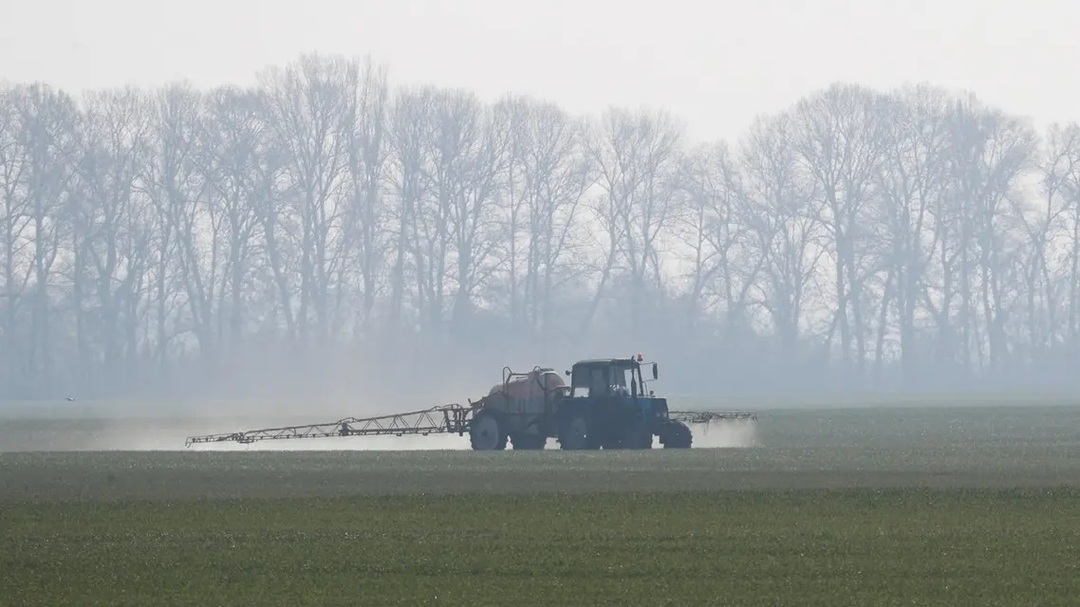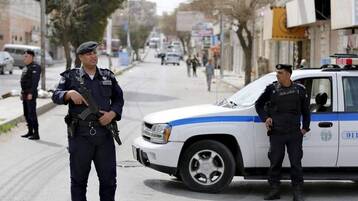-
Report: Europe revives Syria phosphate imports, profiting Russian firm

A report said Thursday (June 30), Syrian phosphates used for fertilizer are being exported to Europe in bulk, benefitting a Russian firm and the sanctions-hit Damascus regime.
Italy, Bulgaria, Spain and Poland are among the EU states receiving Syrian phosphates, according to the report by a consortium of investigative journalists led by Lighthouse Reports and the Organized Crime and Corruption Reporting Project.
The investigation said, citing customs documents and trade data, Serbia and Ukraine are also major buyers of Syrian phosphates. Serbia has imported $72 million since 2017, while Ukraine has imported $30 million over the past four years.
According to trade data reported to the United Nations, Italy and Bulgaria resumed trade over the past two years. Spain and Poland started importing Syrian phosphates in January, with the former purchasing around $900,000 and the latter $37,000 so far this year.
The regime in Syria has since 2015 been heavily backed by Russia in its long-running civil war.

International sanctions do not ban the import of Syrian phosphates but key Russian and Syrian players involved in the trade are sanctioned by the US or Europe, which raises questions over liability.
The trade is growing fast as the war in Ukraine drives up fertilizer and phosphate prices, raising demand for cheap and high-quality Syrian phosphates which were among the country’s top exports before the outbreak of war in 2011.
UN chief appoints Najat Rochdi as deputy special envoy for Syria
According to the report, the export deals are managed by companies linked to Stroytransgaz, a Russian construction giant that controls Syria’s Tartus port and state-run fertilizer factories, along with the right to extract and sell phosphates for a period of 50 years from a key mine.
Thirty per cent of the revenues from phosphate sales are reserved for the Syrian state, according to experts not involved in the report.
Stroytransgaz is owned by a close associate of President Vladimir Putin. It denies it is working in Syria but the investigation said it found senior officials from the Russian company oversee these contracts.
Ukraine cuts ties with Syria over recognition of Donetsk and Lugansk independence
According to the investigation, the sales to Europe are carried out quietly, with cargo ships disabling their tracking systems while heading towards Syria and reappearing en route to Europe later.
The investigation alleged, the European sales are propping up a complex network of shell companies and middlemen, including Lebanese shipping company Mediterranean Petroleum and Shipping.
According to the report, two trading companies managed by a Lebanese businessman have arranged for Syrian phosphates to arrive in Serbia via Romania.
Syrian presence at Interpol anti-drug smuggling conference 'ironic', regime critics say
The report added, Phosphate sales to Europe help line the pockets of Syrian and Russian war profiteers, including a Syrian militia-turned-security company owned by two business figures close to the Damascus regime.
The report also asserts that the trade boon offers no benefits for Syrian farmers who have struggled since the government scrapped fertilizer subsidies last year amid shortages and price hikes.
Source: alarabiyaenglish
You May Also Like
Popular Posts
Caricature
BENEFIT Sponsors Gulf Uni...
- April 17, 2025
BENEFIT, the Kingdom’s innovator and leading company in Fintech and electronic financial transactions service, has announced its sponsorship of the “Innovation and Sustainable Technology Solutions Competition (GU - IST Solutions), hosted by Gulf University at its main campus.
This strategic sponsorship reflects BENEFIT’s active role in advancing technological innovation and fostering sustainable solutions to future challenges. It also seeks to empower Bahraini youth by enhancing their skills, capabilities, and competitiveness in innovation and solution development—contributing meaningfully to the broader goals of sustainable development across all sectors.
As part of BENEFIT’s active involvement in the competition, the company has announced that Hanan Abdulla Hasan, Senior Manager of Public Relations and Communication, will serve on the competition’s supervisory committee. Her upcoming participation reflects BENEFIT’s forward-looking commitment to championing academic and professional excellence.
Commenting on the occasion, Hanan Abdulla Hasan, Senior Manager of Public Relations and Communication at BENEFIT, said, “We are privileged to support this pioneering initiative, which aligns seamlessly with BENEFIT’s enduring commitment to fostering innovation and nurturing the potential of Bahrain’s youth. Our participation is rooted in a deep sense of social responsibility and a firm belief in the pivotal role of innovation in shaping a sustainable future. Through such platforms, we seek to empower the next generation with the knowledge, skills, and foresight required to develop impactful solutions that address future challenges, in line with the United Nations Sustainable Development Goals 2030.”
Dr. Aseel Al Ayash Dean of the College of Engineering in Gulf University commented, “We extend our sincere gratitude to BENEFIT for their generous sponsorship and support of the Innovation and Sustainable Technology Solutions Competition. This contribution plays an instrumental role in helping us achieve the strategic goals of this initiative, namely, cultivating a culture of innovation and sustainability, encouraging efforts that address the imperatives of sustainable development, and enhancing the practical and professional capabilities of our students and participants.”
The event will bring together a diverse spectrum of participants, including secondary school students, university undergraduates, engineers, industry professionals, entrepreneurs, academic researchers, and subject matter experts representing a wide range of disciplines.
The competition seeks to inspire participants to develop and present innovative, sustainable technologies aimed at addressing pressing environmental, social, and economic challenges. It encourages the formulation of business models that integrate advanced technological solutions with core principles of sustainability. Moreover, it serves as a platform for emerging leaders, entrepreneurs, and innovators to contribute to the advancement of the Sustainable Development Goals, promote the ethos of responsible technology, and demonstrate its transformative potential across various sectors.
Attendees will have the opportunity to view a series of project presentations submitted by participants, covering diverse areas such as eco-friendly product design, smart and sustainable innovations, renewable energy technologies, water conservation and management, waste minimisation and recycling, green architectural solutions, and sustainable transportation systems. Outstanding projects will be formally recognised and awarded at the conclusion of the event.
opinion
Report
ads
Newsletter
Subscribe to our mailing list to get the new updates!





















